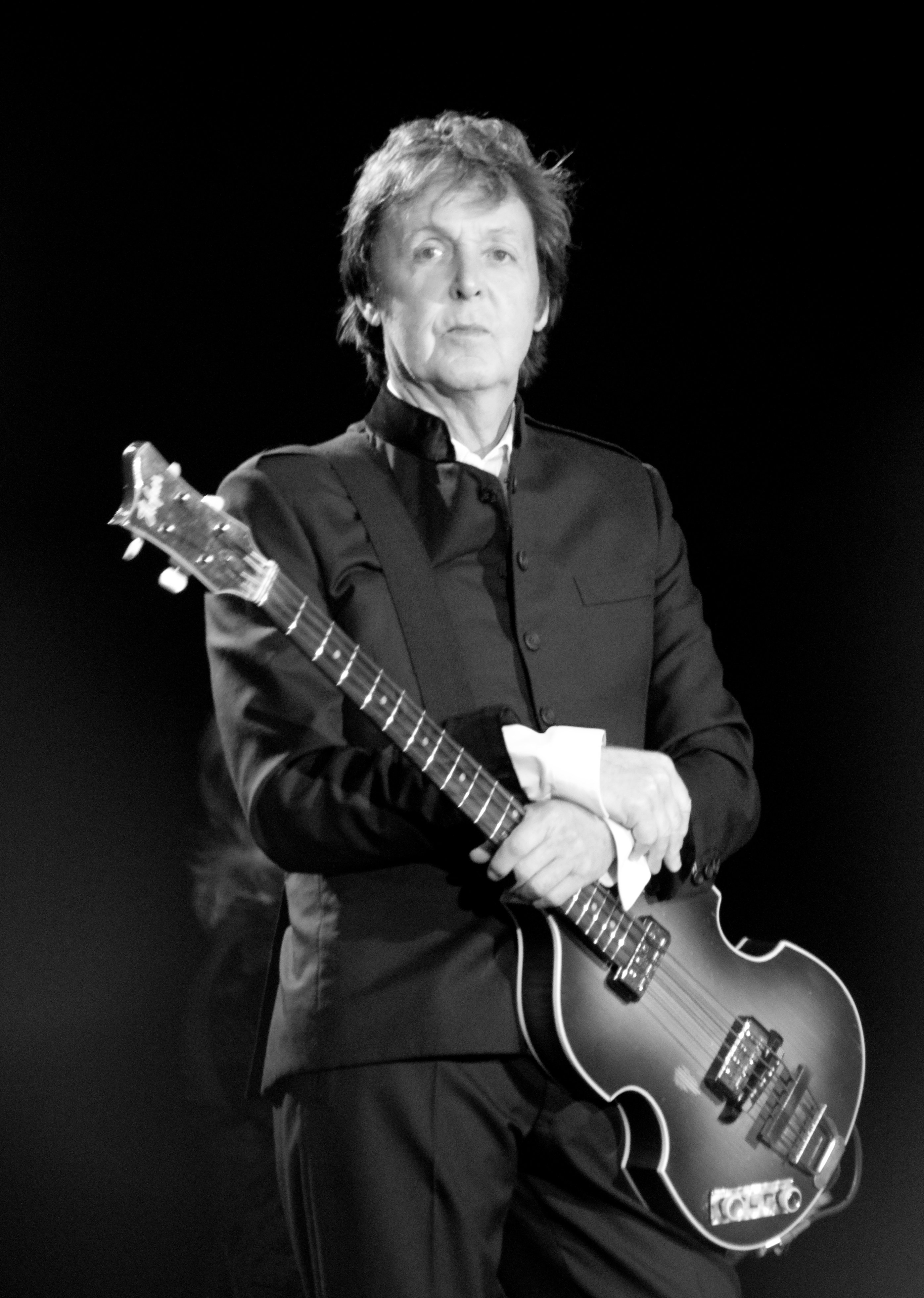The question was: "Who is Paul McCartney?"

The always-insightful Twitterverse provided a massive bank of tweets questioning exactly who this elderly British gentleman on their TVs was. And I, being the resperctable (sp?) online music journalist I am, or claim to be, was shocked -- shocked! -- that there was anyone out there who did not immediately know the founding bassist for Wings.
Admittedly, it's easy to have missed "Sir" Paul, who has flown under the radar for several decades in obscure bands. Every so often he collaborates with a more established artist, like Stevie Wonder, Michael Jackson, or Youth, but mainly it's considered a tax dodge for those superstars. Charity. Cunningly, he's remained underground, cultivating a rabid, vocal, but decidedly minute fanbase, over the past five decades.
Okay. Most people know. If you're reading this blog, it's likely you know me directly and I don't think I would associate myself with you if you couldn't at least pick out three of the four Beatles (George is a bit easy to miss.) However, playing Devil's advocate for a minute, let's acknowledge the audience for the Grammys. For starters, as I mentioned, a disproportionate number of the audience is in favour of abuse. We're not always dealing with the smartest, most aware section of the audience here. It's easy to understand exactly how a musician whose glory days were thirty years before their birth escaped their notice. There's a lot of people, not wrongly, focused on the here-and-now, on the Rihannas and Lady Gagas and LMFAO. This is their world, and the Beatles, that's something old and irrelevant. And honestly, if you're not someone who already knows who Paul McCartney is, you'll probably be perfectly fine continuing to not know. It's not necessary for you.
But even making allowances for how it happens and why it's okay, there's something gnawing at me, sparked by this tweet:

And there's just something not quite right about that. Because although the numbers add up, that seems like a false piece of logic. That seems to preclude any 15-year-olds from caring about Sir Paul, that it's silly to consider they might. But they do. Somehow, the music has survived. I get parents in my store beaming that they're picking up a copy of Abbey Road for their 12-year-old kids, that they asked for The Beatles Rock Band when it came out, that they love Led Zeppelin and Pink Floyd too. I don't think a subset modern 30-year-olds, fifteen years ago, would be caught in a new wave of Comomania.
I'm not here to talk about why Paul McCartney still matters: why his accomplishments deserve recognition, why his legacy should stand. I'm here to acknowledge that it does. That the Beatles fans of the world are constantly being replenished, at least partially, by new discovery, in a way that throwaway pop of bygone days doesn't usually.
On the Internet, nothing dies. Everything lingers, waiting to be reborn. The Beatles, conveniently, form the beginning of the narrative of pop music. Although I love earlier music, if you go back further than 1964, it becomes a bit estranged. But they were there at the time, and were largely the catalyst, popular music took a very solid form. Any fan of the Foo Fighters or Arcade Fire or Bon Iver or some band I haven't heard of yet can trace its lineage back to that time, and now that we have the Internet, we can let that continue to be a well-traveled route, for anyone interested in visiting. You don't even have to be 15 to start; I wasn't. Part of that is due to advocates constantly building the narrative of the Beatles as the greatest, myself included. But it wouldn't have taken hold if there weren't enough evidence to support it.
There may come a day, although I doubt I'll be around, when the Beatles legend finally collapses and nobody thinks about them anymore, when the history of music has moved on to where their moment can no longer be marked as the beginning of anything relevant. Where Abbey Road and A Hard Day's Night are as alien as the old-time crooners or depression-era ditties. But I doubt that their significance will dampen soon, because what they started will probably remain part of the narrative for as long as I'm talking about music. The Beatles will be in that same classification as Socrates or Galileo: Their work was before our time, and much has come since, but they will always be known to the anyone who follows them in their field.
Keep on rockin'
-Scotto

Love this article! Good stuff.
ReplyDeleteThe Beatles are Dead! Long Live The Beatles!